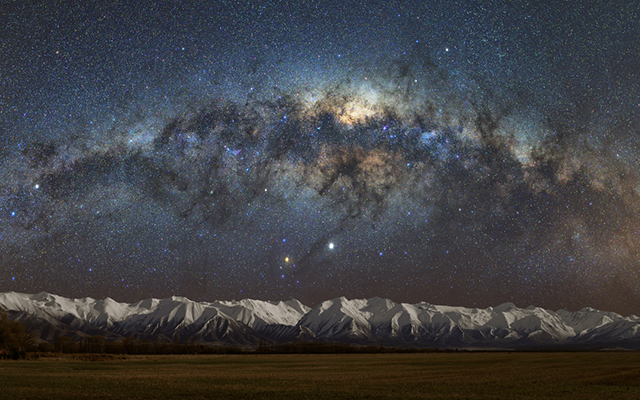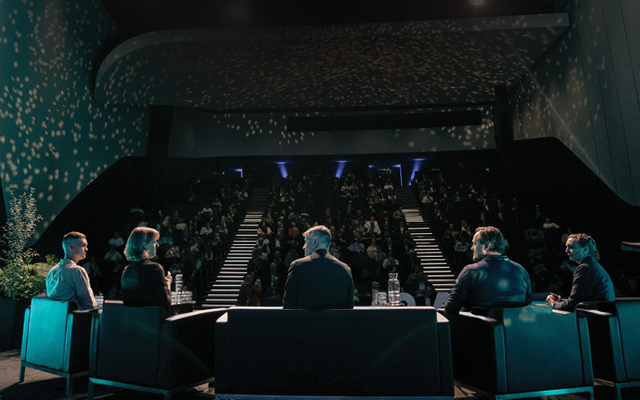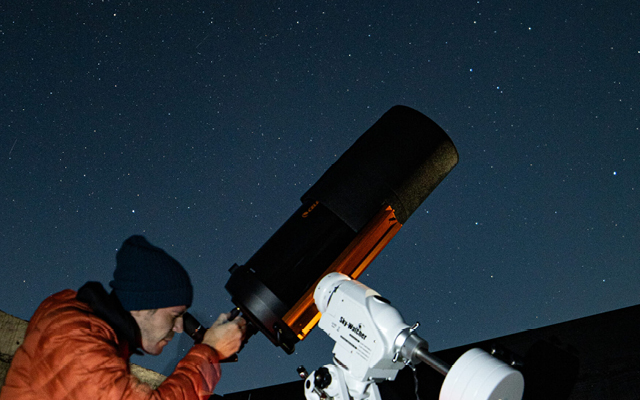New Zealand’s thriving space sector is a stellar example of how innovation and inspiration are attracting conferences to the country.

Brought to you by Tourism New Zealand

New Zealand is in the top four space-faring nations globally thanks to its clear starry skies, ideal launch conditions, and culture of innovation. It sits in third equal place with Russia, behind the US and China, for launches to orbit in 2024.
Space cities
New Zealand’s second largest city, Christchurch, has just been announced as one of four founding members of the global Space Cities Network. This collection of convention bureaux is encouraging business events as a catalyst to increase collaboration across the space sector.
Christchurch is home to a thriving network of space adjacent businesses, including advanced aviation and electronic manufacturing. Low air traffic and favourable atmospheric conditions allow for the development and testing of new aerospace technology, centred around Tāwhaki National Aerospace Centre. Local innovators include green propulsion system developer Dawn Aerospace, and solar-powered unmanned aircraft developer Kea Aerospace.
Beyond Christchurch, New Zealand’s space network stretches the length of the country. In the South that includes Xerra Earth Observation Institute and the University of Otago’s Aero+Space cluster, with a focus on health in space. Further north, Māhia Peninsula is the launch site for Rocket Lab, a global leader in dedicated launch to orbit for small satellites. The University of Auckland’s Te Pūnaha Ātea – Space Institute is a multi-faculty space science & engineering initiative.
Conference connections

New Zealand’s connectedness is also seeing space technology — and conference content — cross boundaries with its other leading areas of expertise.
Remote sensing applications are being used in geoscience and agriculture, for issues from post-disaster recovery to the detection of erosion.
Following a successful Machine Intelligence for GeoAnalytics and Remote Sensing (MIGARS) conference in April in Wellington, IEEE’s flagship International Geoscience and Remote Sensing Symposium (IGARSS) will now come to Auckland in 2028. NASA experts were among the delegates attending ForestSAT 2024, the international conference on the application of remote sensing technologies for forest monitoring and modelling, in Rotorua this September.
Christchurch hosted Extreme Solar Systems V in March 2024, welcoming international astronomers studying exoplanets outside of our solar system, attracted by the chance to see systems that can only be viewed from the Southern Hemisphere.
Meanwhile, the annual New Zealand Aerospace Summit in Christchurch has more than doubled in size in three years. Its 2025 edition will be an official adjacent event to the International Astronautical Congress (IAC) taking place in Sydney.
Look to the stars

New Zealand’s clear night skies also make for beautiful stargazing conditions that add unique appeal to any conference agenda. New Zealand is aiming to become the world’s first ‘Dark Sky Nation’ and is currently home to eight internationally recognised ‘Dark Sky’ sanctuaries and parks across the country.
Some of New Zealand’s favourite pre and post conference activities can be enjoyed with a sprinkling of stardust. Engage with the indigenous Māori culture via Tekapō’s Māori-owned Dark Sky Project’s Dark Sky Experience, combining tātai aroraki (Māori astronomy) and science.
Combine the restorative healing powers of Rotorua’s thermal spas with a spot of ‘spa gazing’ at Wai Ariki Hot Springs & Spa, which offers a stargazing pool.
Or try some ‘stargrazing’, dining on exceptional local cuisine under a star-studded sky. At Billion Star Dining at Mt Cook Lakeside Retreat, Aoraki Mount Cook, enjoy a 6-course fine dining experience at Moraine Lodge, followed by stargazing at the Pukaki Observatory.
If you seek a destination offering out of this world thinking and experiences, it’s here to find. Visit businessevents.newzealand.com




















